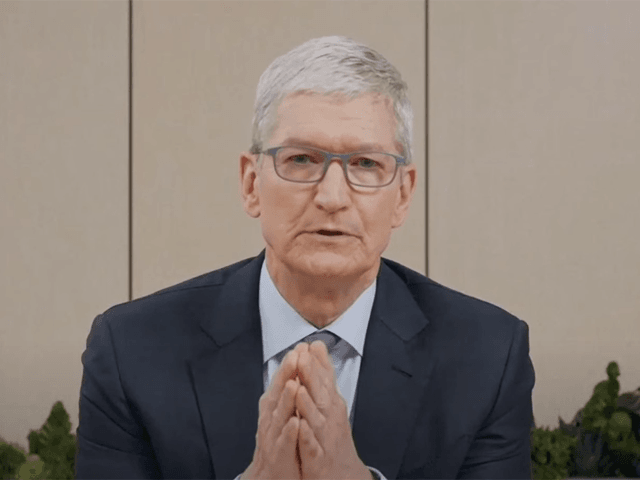On July 26, a consortium of tech companies including Facebook, Google, Microsoft, Twitter, Reddit, Verizon, Airbnb, and Mailchimp announced it would shift the focus of their joint counter-terrorism program, the Global Internet Forum to Counter Terrorism (GIFCT).
Previously dedicated to tracking Islamic extremists, the coalition would now focus its attention on material shared online by “white supremacists” and “far-right militias.”
The next day, PayPal, the leading online payments processor, announced a partnership with the far-left Anti-Defamation League to uncover and disrupt payment flows to those who are allegedly profiting from, according to Reuters, “antisemitism, Islamophobia, racism, anti-immigrant, anti-Black, anti-Hispanic and anti-Asian bigotry.”
In addition to sharing its data with the far-left ADL, PayPal said it would share data with law enforcement.
Then, this week, Apple announced it would introduce a feature allowing the company to proactively scan the devices of all its users, purportedly to detect child abuse imagery, something that Edward Snowden has called “mass surveillance.”
Is stopping child abuse really the ultimate intention? Since Apple first entered the smartphone market in 2007, it has cultivated an image of ultra-privacy, making this move even more curious.
Unlike its competitor Google, Apple’s business model does not rely on mass data collection to turn a profit. Instead, the company makes its money from charging premium prices for its hardware and taking a big cut of app store revenue.
Everyone knows Google scans your Android devices for every scrap of data it can acquire, but Apple has deliberately avoided top-down scanning of devices. Until now.
Are we to believe that after 14 years, Apple has suddenly recognized the problem of child abuse imagery on the internet? And that its recognized it to such an extent that it’s watered down one of its biggest selling points over Google?
As Breitbart News’ Lucas Nolan reported:
Apple has always branded itself as a privacy-focused tech firm, even ridiculing companies like Google with a large billboard at CES which stated: “What happens on your iPhone stays on your iPhone.” It seems that may not be the case for much longer.
This is a company that refused to help the FBI break encryption on an iPhone used by a terrorist who massacred over a dozen people in San Bernadino, California. Now it’s imposing top-down surveillance on the devices of all its users.
What’s more, Apple’s move came just two weeks after PayPal said it would share its data with law enforcement, and just two weeks after a Big Tech anti-terrorism coalition said it would shift its focus to the far-right.
What’s causing all these companies to make leaps and bounds towards mass surveillance, at almost exactly the same time?
We know that the Biden administration is publicly pressuring tech giants to follow its lead when it comes to censoring so-called misinformation. The question is, what kind of pressure is the administration putting on Big Tech behind the scenes? And what else is it demanding from the tech giants?
Allum Bokhari is the senior technology correspondent at Breitbart News. He is the author of #DELETED: Big Tech’s Battle to Erase the Trump Movement and Steal The Election.
Originally found on Breitbart Read More








